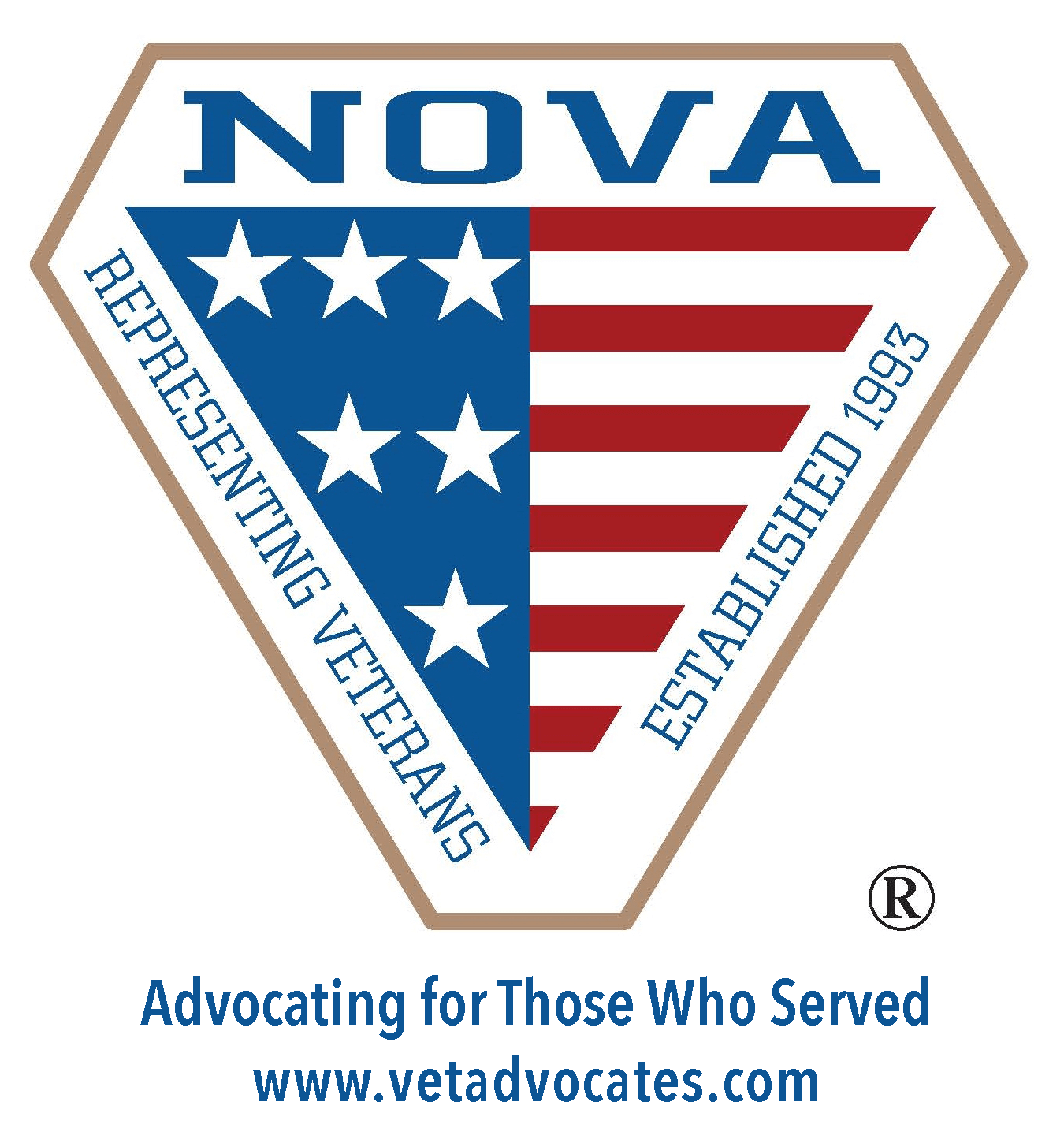A VA rating for anxiety can be given to veterans suffering from a diagnosed anxiety disorder, including generalized anxiety disorder (GAD). Anxiety disorders like GAD can affect every part of a veteran’s life, due to constant worrying over details of everyday life. This non-stop stress can result in severe physical and occupational impairment that often makes it difficult or impossible to work enough to support yourself.
Fortunately, VA disability benefits for anxiety can help compensate veterans for lost earning capacity due to their disability. Keep reading for information on what veterans with generalized anxiety disorder experience, and how you may be able to get an anxiety VA rating.
Talk to Us About Your Claim:
(866) 232-5777
In this article about VA ratings for anxiety:
Veterans with anxiety
Everyone gets anxious from time to time. Worries that are specific to work, family life, and your overall health are normal. But when anxious thoughts get excessive, it can take a serious toll.
Many combat and non-combat veterans experience or witness traumatic events during military service, making anxiety within the veteran population a very common issue. In fact, out of 4,461,208 veterans that were seen in the Veterans Health Administration’s patient-centered medical homes in 2010 and 2011, 4.8% of them had an anxiety disorder.
Oftentimes, symptoms of anxiety like nervousness and the urge to avoid certain triggering situations can affect your ability to work and earn an income after discharge. If this sounds like you, you could be eligible for VA benefits for anxiety.

Anxiety disorders considered for VA disability rating
VA disability ratings for anxiety disorders can be obtained for any diagnosed anxiety disorder. Five of the most commonly recognized anxiety disorders include:
- Obsessive compulsive disorder (OCD)
OCD is a long-lasting disorder characterized by the urge to complete repetitive actions (compulsions) and/or uncontrollable thoughts (obsessions).
- Panic disorder and/or agoraphobia
Those with panic disorder experience frequent panic attacks that come on unexpectedly. Panic attacks can feel like a wave of impending doom or can be a feeling that something bad is about to happen.
Agoraphobia, the fear of certain places or situations, is a side effect of panic disorder that leads you to avoid situations that have caused panic attacks in the past. For example, if you’ve previously experienced panic attacks as an airplane passenger you may develop agoraphobia and avoid traveling by airplane altogether.
- Post-traumatic stress disorder (PTSD)
PTSD is a mental health disorder that is triggered by a specific traumatic event. As a veteran, you may have experienced or witnessed what is called a PTSD stressor in or out of combat, that can lead to nightmares, recurring negative thoughts, and other symptoms.
- Social anxiety disorder
Social anxiety disorder is characterized by feelings of intense anxiety or fear in social situations. This includes public speaking, meeting new people, using public restrooms, and even eating in public for fear of being judged or scrutinized.
- Generalized anxiety disorder (GAD)
People with GAD have constant feelings of nervousness or dread. This type of anxiety isn’t related to anything specific, and can make it difficult to function socially and professionally. We take a deeper look at GAD below.
Generalized anxiety disorder
GAD is different from occasional anxiety over an upcoming job interview or a big event. Instead, it’s an excessive, sometimes irrational, amount of worrying about money, relationships, your health, work, family, and more without an obvious reason for concern.
This all-encompassing mental health disorder can interfere with your daily life because your symptoms can last for months or even years. Veterans are at a greater risk of developing GAD because of exposure to traumatic events and situations during military service.
Other symptoms of GAD can include:
- Feeling on edge
- Getting tired easily
- Difficulty concentrating
- Being irritable
- Headaches, muscle aches, stomachaches, or other unexplained pain
- Difficulty controlling feelings of worry, no matter what
- Getting tired easily
- Insomnia
- Difficulty breathing or shortness of breath
- Sweating
How to prove a service connection for anxiety
In order to qualify for VA benefits for GAD, you’ll have to submit evidence of your diagnosis and how your disability was caused or worsened by either your military service or your already service-connected conditions.
Having a diagnosis of anxiety or reporting anxiety symptoms during service can help build your case for service connection. However, if symptoms pop up months or years later, you can still build a case.
An in-service GAD diagnosis is the easiest way to show a service connection. In-service diagnosis means that you received an official diagnosis while still in service. If you were not diagnosed in service, you may have documentation of your symptoms in your military medical records, if you were seen by a doctor.
If your anxiety was bad enough that you were discharged because of it, you will automatically receive a rating of at least 50% from the VA for six months after discharge.
A post-service GAD diagnosis means that your anxiety disorder was not diagnosed until after discharge, or you may have had symptoms during service, but were misdiagnosed. In this case you may be able to prove that you do not have that original condition, and that GAD is the correct diagnosis.
Some veterans don’t develop anxiety symptoms until after discharge, and that’s normal too. If your GAD was caused by a specific service related stressor, you only need to provide evidence of that stressor to qualify for benefits.
VA rating for anxiety
Veterans with a diagnosis of GAD or any other specified or unspecified anxiety disorder can file a claim for VA disability benefits. It doesn’t matter what specific anxiety disorder you have, they are rated using the same criteria.
The VA rates generalized anxiety disorder, and all other mental disorders, using the General Rating Formula for Mental Disorders. Anxiety disorders can be rated at 0%, 10%, 30%, 50%, 70%, or 100%, depending on the severity and frequency of your symptoms. The more often you experience symptoms, the higher your rating could be.
| Description | VA Rating | Monthly payment* |
|---|---|---|
| Total occupational and social impairment, due to such symptoms as: gross impairment in thought processes or communication; persistent delusions or hallucinations; grossly inappropriate behavior; persistent danger of hurting self or others; intermittent inability to perform activities of daily living (including maintenance of minimal personal hygiene); disorientation to time or place; memory loss for names of close relatives, own occupation, or own name. | 100% | $3,737.85 |
| Occupational and social impairment, with deficiencies in most areas, such as work, school, family relations, judgment, thinking, or mood, due to such symptoms as: suicidal ideation; obsessional rituals which interfere with routine activities; speech intermittently illogical, obscure, or irrelevant; near-continuous panic or depression affecting the ability to function independently, appropriately and effectively; impaired impulse control (such as unprovoked irritability with periods of violence); spatial disorientation; neglect of personal appearance and hygiene; difficulty in adapting to stressful circumstances (including work or a worklike setting); inability to establish and maintain effective relationships. | 70% | $1,716.28 |
| Occupational and social impairment with reduced reliability and productivity due to such symptoms as: flattened affect; circumstantial, circumlocutory, or stereotyped speech; panic attacks more than once a week; difficulty in understanding complex commands; impairment of short- and long-term memory (e.g., retention of only highly learned material, forgetting to complete tasks); impaired judgment; impaired abstract thinking; disturbances of motivation and mood; difficulty in establishing and maintaining effective work and social relationships. | 50% | $1,075.16 |
| Occupational and social impairment with occasional decrease in work efficiency and intermittent periods of inability to perform occupational tasks (although generally functioning satisfactorily, with routine behavior, self-care, and conversation normal), due to such symptoms as: depressed mood, anxiety, suspiciousness, panic attacks (weekly or less often), chronic sleep impairment, mild memory loss (such as forgetting names, directions, recent events). | 30% | $524.31 |
| Occupational and social impairment due to mild or transient symptoms which decrease work efficiency and ability to perform occupational tasks only during periods of significant stress, or symptoms controlled by continuous medication. | 10% | $171.23 |
| A mental condition has been formally diagnosed, but symptoms are not severe enough either to interfere with occupational and social functioning or to require continuous medication. | 0% | None |
Understanding VA anxiety ratings and unemployability
When assigning a rating for anxiety, the VA takes all of your documented symptoms into account, in addition to how they interfere with your occupational and social functioning. This information will be gathered from evidence you submit, evidence the VA gathers for you in its duty to assist, and your C&P exam.
A 0% rating means that you have an anxiety diagnosis and the VA has confirmed there is a nexus linking the condition to your service, but few if any symptoms interfere with work and social functioning. A 0% rating does not qualify you for monthly compensation, but having this rating and service connection already established can help if your condition worsens over time.
VA disability lawyer Zack Evans explains how anxiety is rated in more detail:
“A 50 rating is someone who is consistently suffering from the effects of their mental health disorder. This is someone who just about every aspect of their life is affected in some way, especially social and occupational functioning. Now a 70 rating suggests deficiencies in most areas. This includes work, school, family relations, judgment, thinking and/or mood. Just by the way the rating is described in the CFR (Code of Federal Regulations), you can tell this is a much more serious situation.”
Meanwhile, a 70% rating means that you are deficient in most areas of functioning, including mood, work or school, relationships, thoughts, and judgment. A single 70% rating for mental health qualifies you to be considered for schedular total disability individual unemployability (TDIU), which is available to veterans with disabilities that prevent them from seeking or maintaining substantially gainful employment.
If you have other service-connected conditions or secondary conditions stemming from your anxiety, you could still be eligible for TDIU.
The VA-accredited attorneys at Woods and Woods can look at how your level of impairment from anxiety combines with that of any service-connected physical disabilities you may have to help you get TDIU. Bear in mind; your mental and physical disabilities must both be service-connected.
“If you were injured while serving this country and are reading this review, I encourage you to contact Woods and Woods right away. They are always standing ready to assist veterans in need.”
Our VA-accredited attorneys can help you with your claim
At Woods and Woods, our experienced team of lawyers, legal analysts, and case managers helps veterans like you get the VA benefits they deserve. If you’ve been denied in the past, call us for a free case evaluation. If we take your case, you only pay if you win.
Talk to Us About Your Claim:
(866) 232-5777
FREQUENTLY ASKED QUESTIONS
If your anxiety disorder was caused or aggravated by your time in the military, you could be eligible for VA benefits for anxiety. The VA rates anxiety between 0% and 100% depending on the frequency and severity of your symptoms.
Some veterans don’t develop anxiety symptoms until after discharge, but can still qualify for disability compensation from the VA. If your GAD was caused by a specific stressor during service, you need to provide evidence of the stressor and its connection to your current condition to qualify for benefits.



